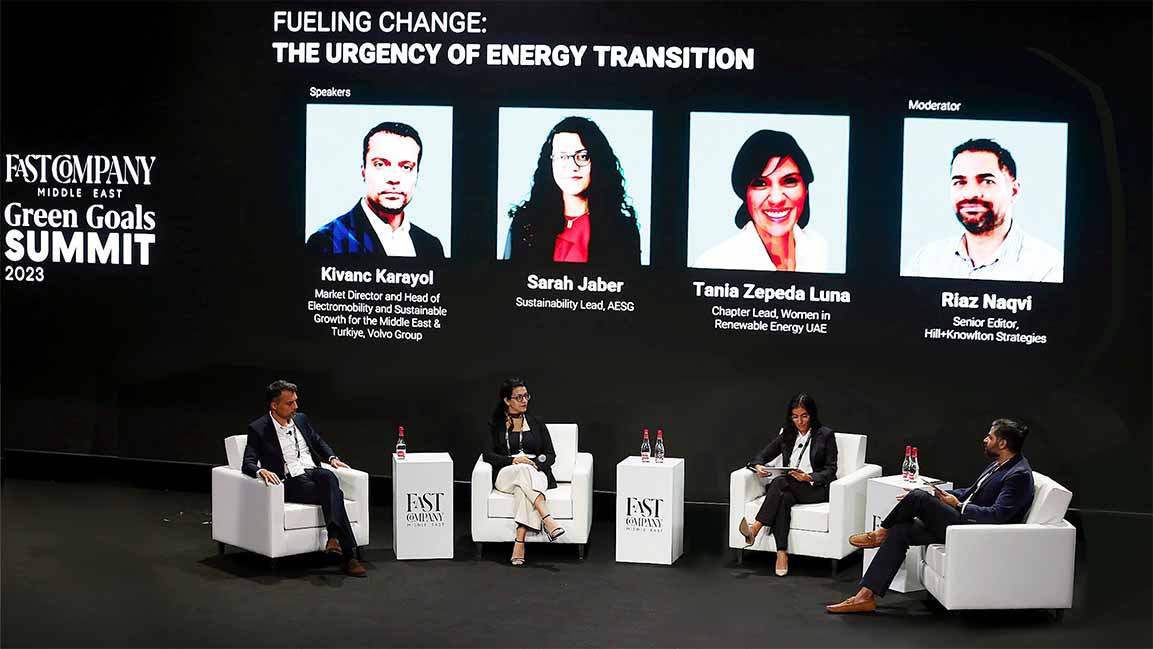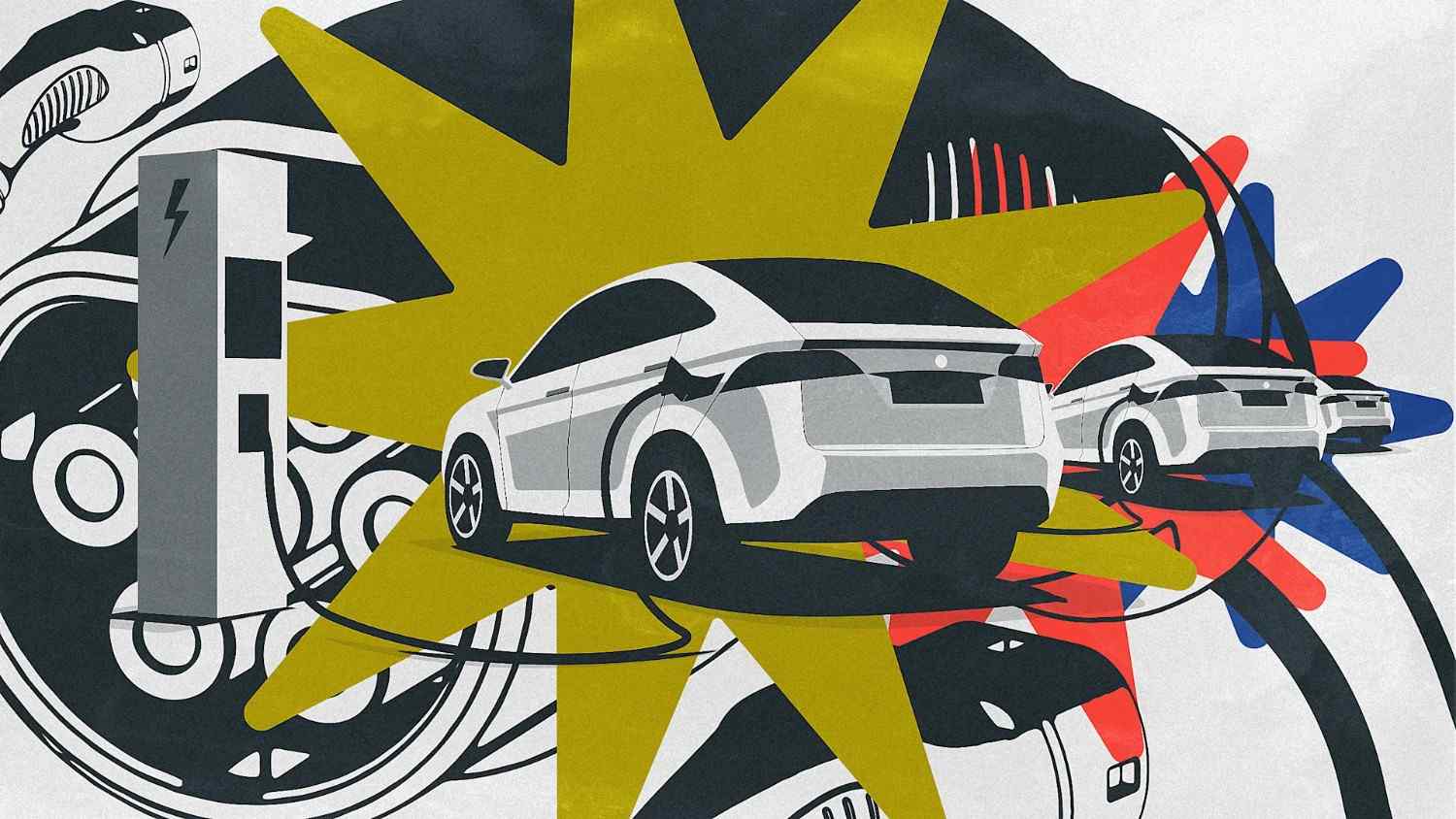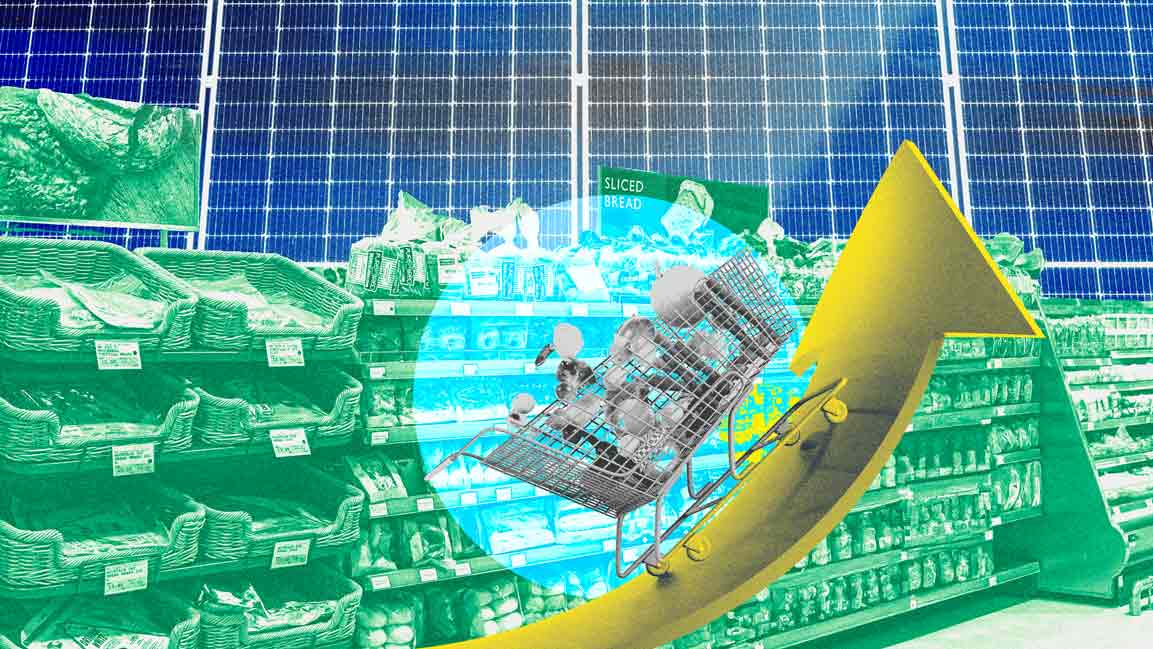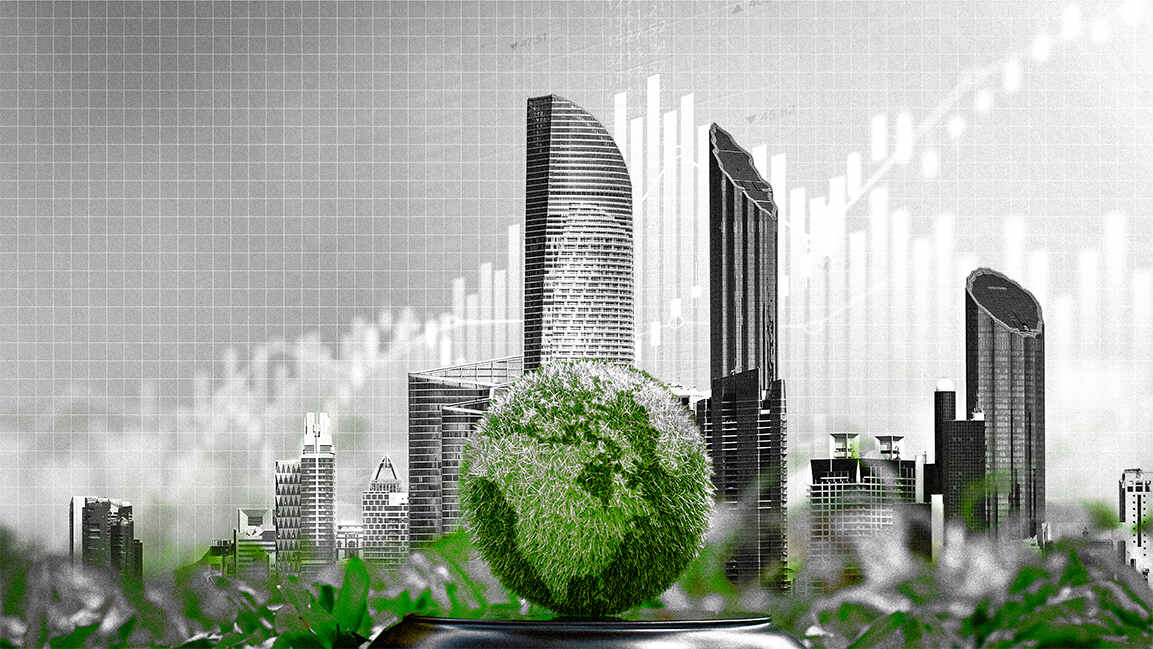- | 9:00 am
Clean energy is our best bet in the Middle East. But why is the transition complex?
At the Green Goals Summit, experts advocated for rapid CO2 reductions and fossil fuel phase-out, and emphasized the pivotal role of adopting renewables

How can countries balance the immediate energy needs of growing populations while transitioning to sustainable and renewable energy sources? IEA analysis shows that coal, oil, and gas will peak this decade. A global commitment to increasing renewable energy and efficiency is crucial to rapidly bringing down global coal emissions to meet international climate goals while supporting energy security and economic growth.
Experts highlighted the significance of prioritizing renewables and efficiency in the Fueling Change: The Urgency of the Energy Transition panel at last month’s Green Goals Summit, held at the Museum of the Future in Dubai.
According to Tania Zepeda Luna, Chapter Lead of Women in Renewable Energy UAE, the current energy transition is both a necessity and a significant opportunity. “Clean energy to impact climate change is one of our best bets. We need to speed up our transition to meet 1.5 degrees.”
“Energy security is complex,” said Sarah Jaber, Sustainability Lead, AESG, highlighting the importance of reducing dependence on fossil fuels. She commended the progress in the UAE towards embracing renewables. “We need to invest in enhancing resilience, both in terms of grid infrastructure and at the consumer level.”
NAVIGATING INFLATION
The automotive industry accounts for a significant portion of the total emissions generated by the transportation sector. In fact, road transport alone contributes to three-quarters of these emissions and 15% of the overall global CO2 emissions.
However, several challenges hinder the progress of decarbonization efforts.
As with many others, market dynamics constantly evolve in the electric mobility sector. Kivanc Karayol, the Market Director and Head of Electromobility and Sustainable Growth for the Middle East & Turkey at Volvo Group, provided valuable insights into the sector’s current challenges.
“Inflation is a challenge, but it’s transitionary,” he said. Drawing attention to specific components crucial for automotive manufacturing, such as chips and semiconductors, he suggested that suppliers might perceive the inflationary environment as an opportunity to increase prices.
Like many others, the automotive industry witnessed a surge in demand, a phenomenon further exacerbated by the complexities introduced by the COVID-19 pandemic. Karayol highlighted Volvo Group’s response to this surge: “We increased our prices by 40-50% during COVID.”
He emphasized the interconnectedness of the automotive industry with broader trends in renewable energy. “What I mean by inflation is transitionary; it’s not just Internal Combustion Engine (ICE) but also affects other renewable energy sources.”
Importantly, Karayol dispelled any notion of immunity within the automotive industry. “There is no total cost of ownership for the commercial vehicles industry,” he said, emphasizing that inflation impacts both traditional ICE vehicles and their sustainable counterparts.
“Despite inflation, we’ve seen energy prices drop, solar and wind by 3% to 5%, 13% in biogas, and 20% in biothermal.” His observation highlights a trend where the costs associated with various renewable energy sources have experienced notable reductions.
The decreasing prices of renewable energy underscore these sources’ growing competitiveness and efficiency. It signals advancements and improved cost-effectiveness in harnessing energy from organic materials.
Luna said this is a positive shift in the economics of renewable energy, making it not only environmentally sustainable but increasingly affordable.
SCALING RENEWABLES
Scaling renewables is a critical imperative in the global pursuit of sustainable and clean energy sources. This expansion is vital for mitigating climate change, reducing dependence on fossil fuels, and ensuring a resilient and sustainable energy future.
Karayol highlighted the primary challenge in the renewable energy sector: “More than scaling, the challenge is efficiency.” He pointed out that the UAE initiated its renewable energy journey in 2011 and achieved an impressive 25-26% efficiency, emphasizing that efficiency poses a more substantial obstacle than scaling.
Karayol underscored the remarkable potential of solar energy, highlighting that “20 minutes of sunlight is more energy capacity than what the world needs for the whole year.” This stark observation emphasizes the vast untapped potential of renewable resources.
While recognizing the energy potential in the Middle East, Karayol emphasized that efficiency is a concern. “Efficiency is the world’s problem,” adding the challenge of optimizing renewable energy systems.
Acknowledging the diversity in energy requirements globally, Karayol pointed out, “Every country has its requirements.” He said the favorable location of the UAE in terms of receiving energy, acknowledging the unique energy landscapes of different nations.
In addressing specific challenges within Dubai, particularly in areas like Marina and Al Quoz, where electric vehicle options are limited, Karayol said, “UAE has a lot of different solutions.” He outlined the UAE’s proactive approach: “We’re preparing ourselves for electric mobility, green hydrogen, and internal combustion engines with alternative fuels,” underscoring the multifaceted strategy in adopting various sustainable energy solutions.
The experts agreed that the most significant opportunity for achieving substantial and swift reductions in CO2 emissions, essential for advancing towards a 1.5-degree pathway and the gradual elimination of fossil fuels, lies in adopting renewable energy sources and enhancing energy efficiency.







































